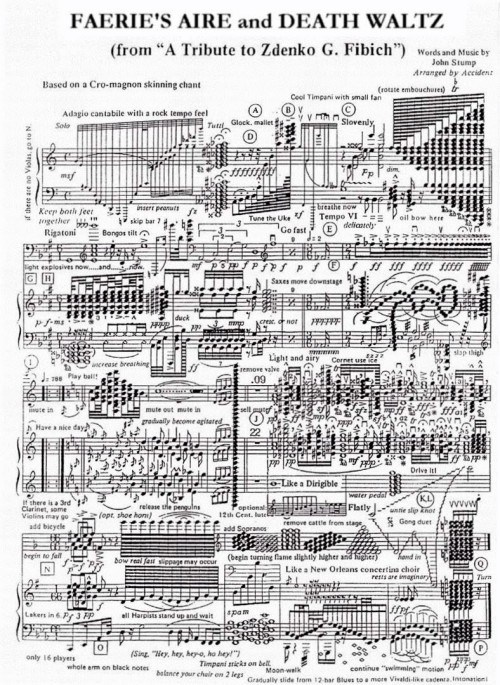by Amy Dinsmore, Principal Oboe, Commonwealth Orchestra

I recently reacquainted myself with a book that’s been on my bookshelf for years—The Agony of Modern Music by Henry Pleasants (Simon & Schuster, 1955). I have to admit I was more attracted to the title than the thought of actually reading it. Musical scholar I am not. But I’m drawn to the book again. The author makes some good points, but we have to keep in mind that it was written in 1955. Composers were desperately trying to be different than their predecessors and the result was not always something that classical music listeners could tolerate, nor understand. Examples of this are the 12-tone works by Schoenberg, Berg and the like, polytonality in Ives and electronic music by Varese, Stockhausen, et al.
Pleasants argues:
- Modern music represents an attempt to perpetuate a European musical tradition whose technical resources are exhausted, and which no longer has any cultural validity.
- That it continues to be composed, performed, and discussed represents self-deception by an element of society which refuses to believe that this is true.
- The hopelessness of the situation is technically demonstrable, and contemporary composers are aware of it. What makes their own situation hopeless is that they cannot break with the tradition without renouncing the special status they enjoy as serious composers.
- They have this status is the result of a popular superstition that serious music is by definition superior to popular music.

While the above-mentioned composers were “successful” in their day for breaking the mold and offering something different, I’m not sure they are on anyone’s “Desert Island” list now. But I think they paved the way for new types of compositions that use all of the techniques available to them, but in a more accessible manner.
Pleasants is not totally hopeless. He admits, “There is good music, indifferent music and bad music, and they all exist in all types of composition.”
What COOP wants to do is bring the musical listener back into the fold of classical music. We make it accessible—humorous even—yet thoughtful and poignant.
~ Jan. 5, 2020

Editor’s note: When not playing with COOP, Amy Dinsmore is Music Coordinator and oboe instructor for the Music Department at UMass Lowell.. She has been on the board of COOP since the early days and recently has been responsible for the beautiful posters readers have been viewing in our postcards and on Facebook. On all levels, she has been a great addition to the orchestra and we’re most grateful to her.
Also, of the two pieces of music pictured above, one is real and the other is not. Can you guess which is which?